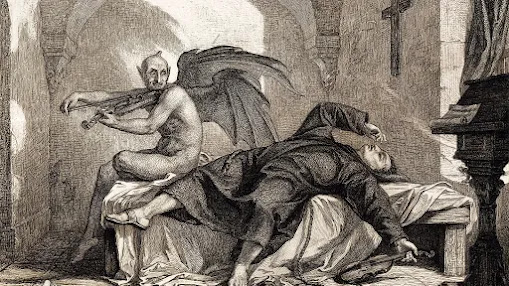Citation:
Hufford, David J. “Sleep Paralysis as Spiritual Experience: Sleep Paralysis.” Transcultural Psychiatry, vol. 42, no. 1, Sage, 2005, pp. 11–45.
Summary:
According to Hufford, The study of sleep paralysis can serve as a guide for studying spiritual experiences too. Additionally, our scientific knowledge does not actually contradict spiritual beliefs. However, the current mindset in America regarding spirituality has caused people to believe that supernatural experiences and science cannot co-exist. For example, the author also brings up how speaking about personal spiritual experiences became taboo and how they were put under the term hallucinations and consequently “pathologized”. Due to stigma relating to mental illnesses, people were too scared to report their own experiences because they feared being seen as mentally unstable and thus it appears that only spiritually inclined religious groups who already had a pre-existing belief in the supernatural only experienced them. Although many people who never had any beliefs about spirituality experienced very vivid and terrifying “hallucinations” and regardless of the cultural frame, many experiences can still be recognized as sleep paralysis. One key idea from this article is that science succeeds in describing physiology but folk tales succeed in telling the subjective experience.
Author(s):
The author of the article that I am using, was formerly a professor and director at the Doctors Kienle Center for Humanistic Medicine at the Penn State College of Medicine. He has also many other works on sleep paralysis such as his other book The Terror That Comes in the Night. The author even mentions that he personally had sleep paralysis himself and it was very similar to the “night hag phenomena” in Newfoundland, despite having no cultural knowledge or background about that folk belief. This is a major reason why he came up with his Experiential Theory.
Key terms:
Hufford introduces his Experiential Theory” that there are spiritual experiences independent of being based on past personal or beliefs and may even actually be the cause for these uncanny spiritual beliefs instead, which goes totally against the Cultural Source Hypothesis. Apparently, this hypothesis is very prevalent and the author that I mentioned in my previous blog, Shelley Adler, made her book Sleep paralysis: night-mares, nocebos, and the mind-body connection revolve around it. Hufford also introduces the term core spirit experience which is when people are immediately convinced their experience was due to spiritual matters despite their own prior knowledge or beliefs and apparently this is a very normal phenomenon.
Three Quotes:
1.) “Yet in the mainstream modern society, the stigma of psychopathology remains so associated with such experiences that those who have them are afraid to disclose them despite their generally consoling quality” (Hufford,13)
2.) “Two points I have been arguing regarding SP in mainstream America; (i) current scientific knowledge about SP, and the acceptance of that knowledge does not impede spiritual interpretations; and (ii) the discovery of a large number of other experiences with complex and similar subjective experiences, tends to perceived as confirmation of reality- that is, the non-imaginary nature - of SP” (Hufford, 30).
3.) “In SP it is not that those who believe in supernatural evil populate the experience with their preexisting fears and then mistakenly interpret the fantasies as real on the basis of prior belief. The experiences are compellingly real and they produce belief empirically.” (Hufford, 20)
Value:
I think this material would be really helpful because it gives more insight into the subjective experience of sleep paralysis, which is what I would like to focus on in my topic. Additionally, it provides a counterargument against my initial claim that sleep paralysis hallucinations may be impacted by cultural or personal beliefs. Page 34 of Hufford’s work also provides some relevant and significant statistics based on the topic of sleep paralysis. The author proposed a survey showing that the symptoms of feeling a threatening presence were very prevalent and even when they had no experiencing of feeling like they were being pushed down by an entity.

I think you have identified a great theoretical debate, and ultimately you will need to pick a side and defend it, with the other being the counter-argument. Very promising.
ReplyDeleteI love the images you use throughout your blog, by the way. Very cool. Amazing that there were so many images (assuming they are all actually from old sources, as they seem).